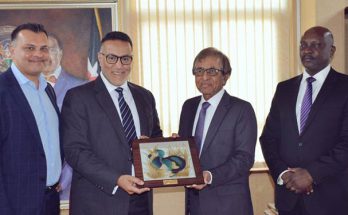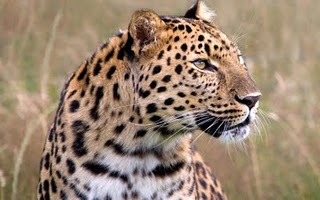
JOHANNESBURG/CAPE TOWN: Branding a product is one thing, branding an entire country is quite another.
How do you capture its essence? What it is and what it aspires to be? Its history and its people ¬¬– colorful and rich and complex.
For nation as vast and diverse as South Africa, the challenge is all the more tasking, but the team at Brand South Africa makes it seem effortless.
“South Africa stands for uplifting optimism,” according to Brand South Africa CEO Miller Matola.
“Ours is a can-do brand. One that knows no boundaries and that stems from where we come from historically as a country, in terms of our direction and in terms of change,” he told Daily News Egypt.
South Africa is hoping to attract 12 million tourists a year by 2014 as well as inward investments of more than 15 billion rand within five years from about 11 target markets.
Part of the job of Brand South Africa, through the International Marketing Council founded in 2002, is to foster this kind of interest in the country through numerous activities – locally and globally – that range from marketing to communications to developing partnerships that position the brand as competitive and attractive.
“Our job is to work with trade and investment to ensure that we create the right environment in those markets and to talk about the sectors where we would like to attract investors. The communications job is really Brand South Africa,” said Matola.
The brand is not exclusive to tourism and investment; it encompasses a unified image of the country’s budding sectors: banking, tourism, mining, wine-making and renewable energy (it is home to the continent’s only nuclear power plant).
It comprises the culture and heritage, its history of conflict and reconciliation as well as aspirations for the future, driven by entrepreneurs, artists, policy makers and educators.
It also boasts strong interest and development in science and technology. Along with eight African countries as partners, South Africa is bidding to possibly house the main site of the Square Kilometer Array (SKA), the largest radio telescope in the world. The country is currently hosting the 62nd International Astronautical Congress.
It has already designed and engineered the MeerKAT telescope as a way of gearing up for the SKA, which is set to “consolidate Southern Africa as a major hub for astronomy in the world.”
Banks and business
South Africa recently partnered with BRIC (Brazil, Russia, India and China) nations, making it the BRICS alliance, enabling it to “represent the voice of African countries and also of emerging markets,” Matola said.
“For business, there are far more opportunities than boundaries in this country. In many ways it serves as a services hub, a strategic hub for the rest of the continent from an investment point of view because of the advanced infrastructure,” he added.
According to the World Economic Forum’s Global Competitiveness Index 2011/12, South Africa ranked 50th out of 142 countries, moving up four places from the previous year (second to China in BRICS).
It ranked among the top five in market development, soundness of banks, protection of minority shareholder interest, auditing and reporting standards as well as regulation of securities exchange.
“With sophisticated financial services, the trend for a lot of multinational companies is to be headquartered in South Africa and then have operations in the rest of the continent,” Matola said.
The nation’s banking sector is touted for being sound and liquid, and as Cas Coovadia of the Banking Association of South Africa said, it was “one of the reasons why the country withstood the global economic crisis.”
GDP grew 4.1 percent in the first quarter of 2011 and 1.3 percent in the second quarter. A current account deficit of 3.3 percent is “necessary for socio-economic development, but manageable,” he said.
It ranked 34 out of 183 countries in ease of doing business, which, he added, “needs improvement because we are stalling.”
Foreign direct investment totaled 12.3 billion rand in the second quarter of 2011 while the Johannesburg Stock Exchange grew 16 percent in 2010. “[South Africa] ranked 10 out of 183 for good practice in protection of business investment,” Coovadia said.
Banks are also developing global footprints, he added.
There are currently 17 registered South African banks, 13 regional branches of international banks, 41 international banks with approved representative offices and two mutual banks.
The sector came into full compliance with Basel II requirements in 2008 and will comply fully with Basel III, “but we’re talking about national discretion,” according to Coovadia.
“These are well-managed institutions in a well-developed and regulated sector that remained well-capitalized [throughout the crises]…we’ve been conservative by nature,” he added.
At the same time however, some of the challenges include liquidity regulations around Basel II. And like global markets, the economic crisis had a knock-on effect on the sector, which saw less growth. Coovadia also pointed to a skills lag in the banking industry that needs to be addressed.
Still with 35-40 percent of the population unbanked, there remains a large untapped margin for growth.
The overall sentiment and the message the brand is sending ¬to the world – at least as far as business is concerned – can be summed up in Coovadia’s words: “The environment for investment is sound.”



